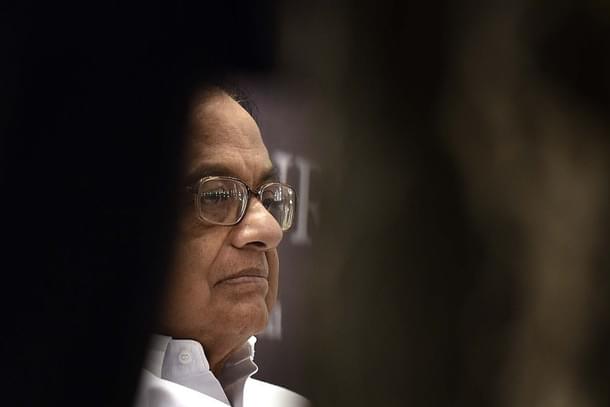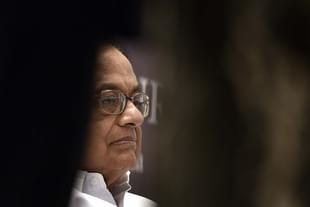Economy
Silencing Chidambaram: Why A Rs 13,000 Crore Tax Cut Is Better Than A Re 1 Cut In Fuel Prices
R Jagannathan
Jun 19, 2018, 11:50 AM | Updated 11:48 AM IST
Save & read from anywhere!
Bookmark stories for easy access on any device or the Swarajya app.


The political slugfest over allegedly high petroleum taxes will not end until the Narendra Modi government challenges the underlying premise of the opposition that it is some kind of organised mugging of the middle class.
Last Sunday (17 June), former finance minister P Chidambaram tweeted: “Govt claims that it will ‘lose’ Rs 13,000 crore for every rupee cut in fuel prices. That’s the wrong way to look at the issue. The correct way to look at the issue: Govt ‘robs’ people of Rs 13,000 crore by every unjustified rupee increase in fuel prices.”
We can argue with whether some recent hikes in fuel taxes were unjustified or not, but we need to get to the core of Chidambaram’s fake argument. Last month, he suggested – rather irresponsibly – that a cut of upto Rs 25 per litre can be done in petrol taxes. Arun Jaitley, now convalescing after a kidney transplant, rebutted Chidambaram through a Facebook post, pointing out that his “distinguished predecessor” had “never endeavoured to do so (ie, cut petro-taxes so drastically) himself. This is a “trap” suggestion. It is intended to push India into an unmanageable debt – something which the UPA government left as its legacy.”
While this is obviously a good counter to Chidambaram’s polemics, it will not do much to save the government from criticism that it is feasting on high oil revenues and robbing middle class petrol consumers.
There is, however, one way to silence the critics. It is to cut income taxes, and not petroleum taxes. There is no greater robbery than income tax. Petroleum taxes are taxes on avoidable consumption, not hard earned income.
A Rs 13,000 crore income tax cut is politically far better than a Rs 13,000 crore meaningless petrol tax cut, since the latter can be negated with the next rise in crude oil prices.
To understand why an income tax cut is better than a petroleum duty slash, one has to understand why demonetisation, and the move towards a less cash economy, largely failed. King Cash is back with a vengeance – currency with the public is now at historical highs, far higher than what it was on 8 November 2016 – and the reason for this is simple: Indians do not like paying income taxes.
People prefer cash for two reasons: one is the ease of transacting small amounts in everyday situations; and the other is anonymity. As long as we do deals in cash, we cannot be caught for tax evasion or non-reportage of incomes.
If we only had to deal with the first reason for holding cash, we could have promoted e-wallets and other methods of easy transaction at the bottom of the pyramid. But clearly it is the latter reason that we need to reckon with.
Modi’s response to the problem of tax evasion has been to drag millions of Indians, screaming and kicking, towards tax-compliance (it is unfair to call it tax terrorism as yet), whether by making Aadhaar and Pan cards mandatory in many kinds of transactions or other means. But given the in-built resistance, government ought to consider whether this is going to do more damage to the economy or less.
In fact, the moderate gains made in GST may relate more to fears that reporting higher sales may result in higher income taxes for some small businesses. Put in the reverse, this argument implies that lowering income taxes may actually result in higher GST compliance.
Modi needs to draw the opposite lesson from the failure of demonetisation to end the average Indian’s preference for cash: if Indians are loath to part with high amounts as income tax, they should be taxed in ways they don’t find as problematic. One suspects that the goods and services tax (GST) will be more acceptable culturally than a high income tax. At any rate, it is a good tradeoff to experiment with.
The reason: in an extremely diverse polity, those who pay high taxes always wonder if the benefits are going to go to someone they disapprove of or can’t quite identify with. In more monocultural countries, high taxes are acceptable since taxpayers see their own kith and kin benefiting from government welfare schemes.
In the Indian context, given its various caste and religious faultlines, progressive income taxes would probably work only within specific castes and communities, where taxes are raised and spent on the same group. But high taxpayers may be less willing to comply when the benefits are diffused. The logical thing to do is to cut income taxes to the bone and let indirect taxes balloon. The Left will cry murder about indirect taxes being regressive, but our GST is not regressive: chai is not being taxed the same as champagne.
There is a case for opting for a moderate, flat tax of, say, 15 per cent, with high thresholds for exemption (Rs 10 lakh tax-free), and a higher rate only for very high incomes (say, above Rs 1 crore).
We can do this in three stages.
First, we should raise the thresholds for tax to Rs 10 lakh, and abolish all tax deductions (80C, etc). Medical and life insurance should be compulsory for all salary earners and offered at low premia (probably with rate subventions) to non-wage employees and the self-employed.
Second, once the GST starts delivering higher revenues – they will if income taxes are cut – we should move to a flat tax of 15 per cent. It is worth noting that even today lots of income earners pay TDS of 10 per cent and fail to file returns; rather than go after them, it would be far better to raise this TDS to 15 per cent for all incomes.
Third, incomes above Rs 1 crore should face an additional surcharge of 15 per cent (making 30 per cent in all), with adjustments at the margin.
Narendra Modi is going to get no additional votes for going after black money; nor is he going to be appreciated for a Re 1 cut in petro-taxes. But he will surely excite his entire middle class vote base by raising tax threshold limits for almost everybody.
Not only that, he can then challenge the Chidambarams of the world who allege that high petro-taxes, which are actually good for the fisc and prevent excess consumption of fossil fuels, are tantamount to robbing the poor and middle classes.
Modi should turn Chidambaram’s argument around and ask ordinary Indians: is paying more for fuel real robbery or forcing you to pay income tax on your hard-earned money?
Jagannathan is former Editorial Director, Swarajya. He tweets at @TheJaggi.





